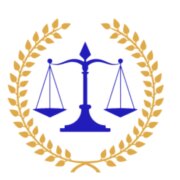Best Collaborative Law Lawyers in Durban
Share your needs with us, get contacted by law firms.
Free. Takes 2 min.
Free Guide to Hiring a Family Lawyer
List of the best lawyers in Durban, South Africa
About Collaborative Law in Durban, South Africa:
Collaborative Law in Durban, South Africa is a process where individuals involved in a legal dispute work together with their respective attorneys to reach a mutually acceptable resolution. This approach focuses on open communication, transparency, and problem-solving rather than traditional litigation.
Why You May Need a Lawyer:
You may need a lawyer in Collaborative Law in Durban if you are facing a family law matter such as divorce, child custody, or property division. A lawyer can help guide you through the process, ensure your rights are protected, and advocate on your behalf during negotiations.
Local Laws Overview:
In Durban, South Africa, Collaborative Law is governed by the Collaborative Practice Act which outlines the procedures and requirements for this alternative dispute resolution method. It is important to be aware of the specific laws and regulations that apply to your case to ensure a successful collaborative process.
Frequently Asked Questions:
What types of cases can be resolved through Collaborative Law?
Collaborative Law in Durban is commonly used in family law matters such as divorce, child custody, and maintenance issues.
How is Collaborative Law different from traditional litigation?
Collaborative Law focuses on cooperation and reaching a mutually beneficial agreement, while traditional litigation involves court proceedings and a judge making decisions for the parties.
Do both parties need to agree to participate in Collaborative Law?
Yes, both parties must voluntarily agree to participate in Collaborative Law in Durban for the process to be effective.
Can I still hire a lawyer if I choose Collaborative Law?
Yes, it is recommended to hire a lawyer who is experienced in Collaborative Law to represent your interests and ensure a fair outcome.
How long does the Collaborative Law process typically take?
The length of the Collaborative Law process in Durban can vary depending on the complexity of the case and the willingness of both parties to cooperate. However, it is generally faster than traditional litigation.
What happens if we are unable to reach an agreement through Collaborative Law?
If an agreement cannot be reached through Collaborative Law, the parties will need to pursue other legal options such as mediation or litigation.
Is Collaborative Law confidential?
Yes, Collaborative Law proceedings are confidential to encourage open communication and negotiation between the parties.
Can children be involved in the Collaborative Law process?
Children's interests are often considered in Collaborative Law cases involving child custody or visitation arrangements, but they are not directly involved in the negotiations.
How much does Collaborative Law cost?
The cost of Collaborative Law in Durban will vary depending on the complexity of the case and the fees of the attorneys involved. It is important to discuss costs and fees with your lawyer before proceeding.
What are the benefits of choosing Collaborative Law over traditional litigation?
The benefits of Collaborative Law include a more cooperative and amicable process, cost-effectiveness, privacy, and the ability to tailor solutions to meet the specific needs of the parties involved.
Additional Resources:
If you are seeking legal advice in Collaborative Law in Durban, South Africa, you may consider contacting the South African Collaborative Family Law Association (SACFLA) for more information and resources.
Next Steps:
If you are in need of legal assistance in Collaborative Law in Durban, South Africa, it is recommended to schedule a consultation with a qualified attorney experienced in this area of law. Your lawyer can provide valuable guidance and support throughout the collaborative process and help you reach a favorable resolution. Remember to communicate openly and honestly with your lawyer to ensure a successful outcome.
Lawzana helps you find the best lawyers and law firms in Durban through a curated and pre-screened list of qualified legal professionals. Our platform offers rankings and detailed profiles of attorneys and law firms, allowing you to compare based on practice areas, including Collaborative Law, experience, and client feedback.
Each profile includes a description of the firm's areas of practice, client reviews, team members and partners, year of establishment, spoken languages, office locations, contact information, social media presence, and any published articles or resources. Most firms on our platform speak English and are experienced in both local and international legal matters.
Get a quote from top-rated law firms in Durban, South Africa — quickly, securely, and without unnecessary hassle.
Disclaimer:
The information provided on this page is for general informational purposes only and does not constitute legal advice. While we strive to ensure the accuracy and relevance of the content, legal information may change over time, and interpretations of the law can vary. You should always consult with a qualified legal professional for advice specific to your situation.
We disclaim all liability for actions taken or not taken based on the content of this page. If you believe any information is incorrect or outdated, please contact us, and we will review and update it where appropriate.
















